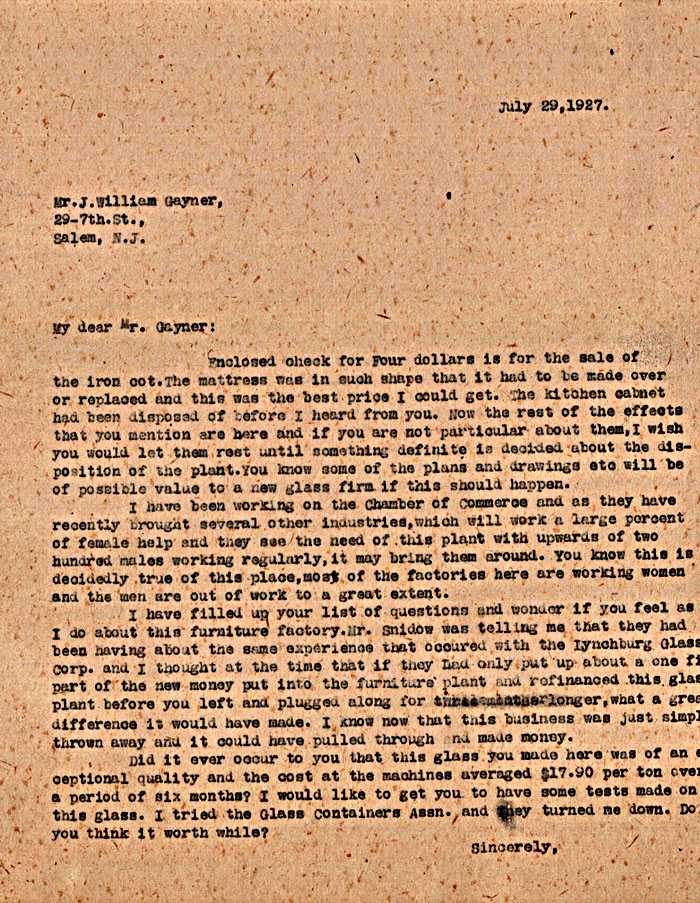Lynchburg Letter: W. H. Loyd to J. William Gayner
July 29, 1927
This letter concerns disposition of Mr. Gayner's personal effects left at the plant, strategies to sell the plant, as well as reflecting on the lack of financial support for the company from the Chamber of Commerce who had financed other industries. Original document was scanned by Dennis Bratcher and converted to text. A scan of W. H. Loyd's copy of the original letter is below.
July 29, 1927.
Mr. J.William Gayner
29- 7th. St.,
Salem, N.J.
My Dear Mr. Gayner:
Enclosed check for Four dollars is for the sale of the iron cot.The mattress was in such shape that it had to be made over or replaced and this was the best price I could get. The kitchen cabnet [sic] had been disposed of before I heard from you. Now the rest of the effects that you mention are here and if you are not particular about them, I wish you would let them rest until something definite is decided about the disposition of the plant. You know some of the plans and drawings etc will be of possible value to a new glass firm if this should happen.
I have been working on the Chamber of Commerce and as they have recently brought several other industries,which will work a large percent of female help and they see the need of this plant with upwards of two hundred males working regularly,it may bring them around. You know this is decidedly true of this place,most of the factories here are working women and the men are out of work to a great extent.
I have filled up your list of questions and wonder if you feel as I do about the furniture factory. Mr Snidow was telling me that they had been having about the same experience that occurred with the Lynchburg Glass Corp. and I thought at the time that if they had only put up about one fifth part of the new money put into the furniture plant and refinanced this glass plant before you left and plugged along for three months longer, what a great difference it would have made. I know that this business was just simply thrown away and it could have pulled through and made money.
Did it ever occur to you that this glass you made here was of an exceptional quality and the cost of the machines averaged $17.90 per ton over a period of six months? I would like to get you to have some tests made on this glass. I tried the Glass Containers Assn. and they turned me down. Do you think it is worth while?
Sincerely,
[W. H. Loyd]

|
